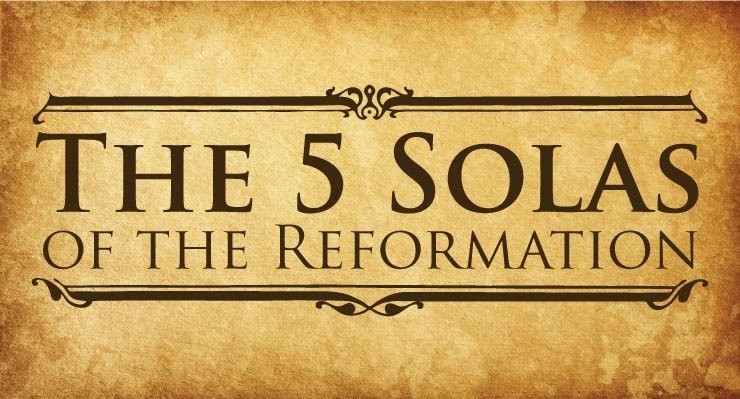
Martin Luther Reformation
The Martin Luther 95 Theses are 95 statements explaining a Protestant interpretation of what penance and the penalty for sin means in the Bible. For those that need The 95 Theses explained, they are also known as the “Disputation on the Power and Efficacy of Indulgences.” In these writings, Martin Luther claims that selling indulgences to finance the church and construction costs was immoral. Religious officials couldn’t control what happens in Purgatory and it was wrong to give people false hope and information about eternal salvation. In this time together we will give you a summary about the 95 Theses and give insight about Martin Luther’s Life.
Theologian Martin Luther forever changed Christianity when he began the Protestant Reformation in 16th-century Europe. If people know only one thing about the Protestant Reformation, Five hundred years ago, on October 31, 1517, one of the most significant events in history took place when a 34-year-old Augustinian monk named Martin Luther nailed his now-famous “Ninety-five Theses” to the door of the All Saints Castle Church in Wittenberg, Germany.
A church door was like a bulletin board; tacking a notice to it was an accepted way of requesting a debate on an issue. Luther wrote his theses in Latin, which the average commoner could not read. But someone translated them into German and thanks to Gutenberg’s recently invented printing press, thousands of copies were quickly disseminated in Germany and beyond.
Luther had unintentionally changed his history and world history! Martin Luther Reformation 95 Theses. Luther is known mostly for his teachings about Scripture and justification.
Luther was born into a German Catholic home in 1483. His father wanted him to become a lawyer, so he dutifully began law school in 1505. But that year a lightning bolt nearly struck him. Luther believed that God unleashed that bolt to judge his guilty soul. In terror, he cried out to his father’s patron saint, “Help me, St. Anne, and I will become a monk!”
Two weeks later, much to his father’s disapproval, he dropped out of law school and entered a monastery.
“I myself was a monk for twenty years. I tortured myself with praying, fasting, keeping vigils, and freezing—the cold alone was enough to kill me—and I inflicted upon myself such pain as I would never inflict again, even if I could…. If any monk ever got to heaven by monkery, then I should have made it.”
But Luther found no relief from his guilt. He continued his studies and was a brilliant scholar. In 1510, Luther’s spiritual supervisor, who didn’t quite know how to deal with Luther’s extraordinary guilt, thought that a trip to Rome might help the troubled young man.
But when Luther got to that supposed “holy” city, he was shocked by the debauchery, hypocrisy, and blatant sinfulness that he saw.
Luther returned to earn his doctorate in theology and teach at the University of Wittenberg. But his studies did not resolve his turmoil. He struggled with the question, “How can I be righteous before God?”
The Catholic Church prescribed things like confession, penance, accumulating merits, and good works, but nothing helped alleviate his guilt.
As he continued to study the Scriptures for his classes, he began to see that there was a huge difference between what Scripture taught and what the church taught.
In trying to grasp the meaning of Romans 1:17, “But the righteous man shall live by faith,” at some point (scholars debate the exact time), Luther came to the radical realization that we are not made right with God through our righteousness, but rather through God’s imputing the righteousness of Christ to us through faith.
He later wrote of this breakthrough (Christian History, 34:15), “I felt as if I were entirely born again and had entered paradise itself through gates that had been flung open.”
As Luther grew in understanding, he grew increasingly frustrated with the church’s sale of indulgences. So he posted his Ninety-five Theses, not knowing how that action would radically change both his life and the course of history.
The pope at that time was the corrupt, hedonistic Leo X. Through his father’s wealth and connections, Leo had become a priest at age eight and a cardinal at 14. He became pope at the relatively young age of 37. He had no personal faith in Christ and no pretensions of being a religious man. His motto was, “God has given us the Papacy—let us enjoy it.” As pope, when someone had quoted to him from the Gospels, Leo remarked, “How very profitable this fable of Christ has been to us through the ages.”
Leo had spent so much on his lavish lifestyle and extravagant tastes in art that he drained the Vatican treasury. So to raise funds to build St. Peter’s Cathedral, he sold positions in the church and he sold indulgences.
Albert of Mainz in Germany had already bought two bishoprics, but at age 23 he wanted a third because of the money and power that went along with them. But it was against church law to hold so many bishoprics, so it required a papal act to grant it. So the pope and Albert struck a deal. Albert needed the cash he had agreed to pay the pope. And the pope needed funds to build his cathedral. So the pope authorized Albert to sell special indulgences. He could keep half for himself and give the other half to the pope.
Albert recruited a monk, Johann Tetzel, to sell the indulgences, a complex system that basically involved being able to shorten the time in Purgatory for yourself or a deceased loved one by paying money to the church. Tetzel was a showman and a salesman.
He played on people’s emotions: “Listen to the voices of your dear dead relatives and friends, beseeching you and saying, ‘Pity us, pity us. We are in dire torment from which you can redeem us for a pittance.’” His advertising jingle was, “When a coin in the coffer rings, a soul from Purgatory springs.”
At first, Luther naively thought that the pope would endorse his objections to this crass scheme. And the pope wrongly underestimated the threat of Luther’s Ninety-five Theses, which were spreading like wildfire across Europe. The pope dismissed Luther as the ramblings of a drunken German who would think differently when he sobered up.
But the issue quickly became not just the sale of indulgences, but rather the authority of the pope. Did he have the right to issue forgiveness of sins on the basis of someone paying money to the church?
Things quickly escalated, fueled by more of Luther’s writings, which urged major reform in the church. He declared that “a simple layman armed with the Scriptures” was superior to both popes and councils without them.
In 1520, a papal bull threatened Luther with excommunication. He publicly burned it. These events led to the Diet of Worms in the spring of 1521, called for by the Holy Roman Emperor, Charles V.
Luther went, thinking that he would get to debate his Ninety-five Theses. But he quickly realized that this wasn’t a debate—it was a judicial hearing where he was asked to recant his controversial writings that challenged the authority of the church.
After a day of soul-searching, Luther gave his famous reply, “Unless I can be instructed and convinced with evidence from the Holy Scriptures or with open, clear, and distinct grounds of reasoning … then I cannot and will not recant, because it is neither safe nor wise to act against conscience.” Then he probably added, “Here I stand. I can do no other. God help me! Amen.”
Luther was condemned, but granted the safe conduct that he had been promised. (A century before, the Czech reformer Jan Hus had been promised safe conduct, but was imprisoned, tortured, and burned to death at the stake).
Now as an outlaw, anyone could kill Luther without fearing reprisals from an imperial court.
On his way back to Wittenberg, a group of armed horsemen came suddenly out of the forest, snatched Luther from his wagon, and rode off. They had been sent by Luther’s prince, Frederick the Wise, to keep Luther safe. They took him to Wartburg, one of Frederick’s castles, where he was hidden for ten months.
During that time, he continued writing, but his most important accomplishment was to translate the New Testament into common German. And so the Reformation was launched.

As it spread across Europe, the heart of the Reformation was to recover, clarify, and emphasize the gospel of God’s grace, as opposed to the system of works that had engulfed the church.
The Reformation challenged the authority of the pope and church tradition, subjugating it to the Bible. It replaced the Mass with the sermon. This abolished the system of indulgences and merits as necessary for salvation. This abolished the unbiblical doctrine of purgatory. This did away with venerating Mary, praying to her and the saints, and venerating relics, idols, or icons in the church.
It reintroduced congregational singing. It put the Bible in the common language of the people, who could then read it for themselves. It taught the priesthood of every believer. It recognized only two sacraments or ordinances, not seven. It taught that a person’s vocation is his calling and has significance before God. It taught that marriage is good and that church leaders may marry.
But today some Protestant evangelicals think that the Reformation created sinful division in the church and that we should set aside our differences, come together where we agree, and reunite with Rome.
Others, attracted to the ancient liturgy, are joining the Orthodox Church, believing that it is the only true church. So on this 500th anniversary of the beginning of the Protestant Reformation, I want to talk about why it still matters:
The Reformation matters because it recovered the gospel, summed up in the “Five Solas”: Scripture alone; Christ alone; grace alone; faith alone; and glory to God alone.
While sola Scriptura, sola gratia, and sola fide were used in the 16th century, no one seems to know for sure who first put the five solas together. One source states that all five were not systematically articulated together until the 20th century.
But scholars today agree that these Five Solas sum up the heart of the gospel truth that the Reformation recovered. Each one could easily be expanded into a sermon, so my treatment here will be brief.
Sola Scriptura: The Gospel Is Revealed Through Scripture Alone.
This plank of the Reformation deals with the source and authority for spiritual truth.
How can we know God and spiritual truth?
Is it through the pope, the church, church councils, or personal experiences or feelings?
The Reformers rightly brought us back to the Bible alone as the authority for spiritual truth. This rests on several key Scriptures:
(2 Timothy 3:16-17): “All Scripture is inspired by God and profitable for teaching, for reproof, for correction, for training in righteousness; so that the man of God may be adequate, equipped for every good work.”
(2 Peter 1:20-21): “But know this first of all, that no prophecy of Scripture is a matter of one’s own interpretation, for no prophecy was ever made by an act of human will, but men moved by the Holy Spirit spoke from God.”
(John 17:17): “Sanctify them in the truth; Your word is truth.”
In Luther’s day and beyond, the Catholic Church taught that Scripture is authoritative, but it could only be understood and taught by apostolic tradition, handed down through the teaching authorities in the church (the magisterium) and that these teachings may develop and deepen over time.
Thus doctrines such as Purgatory, the infallibility of the pope, the immaculate conception and assumption of the Virgin Mary, praying to the saints, and other doctrines not found in the Bible are taught as true and equal to Scripture because the teaching authority of the church has declared them to be true.
Besides church tradition, an additional threat to the sole authority of Scripture is the claim of personal, direct revelation from the Holy Spirit. Many today in the Pentecostal tradition claim that the Lord has revealed to them things that are not in Scripture, sometimes things that are contrary to Scripture.
For example, I once heard a well-known charismatic preacher claim that the Lord told him that he should have performed a wedding for a couple where one person was not a believer, even though Scripture is clear that believers should not marry unbelievers.
But Luther and the other Reformers saw that when Scripture, church tradition, or personal experience are placed on the same plane, tradition or experience end up trumping and perverting Scripture, resulting in all sorts of errors.
This is not to disregard the wisdom embodied in the early church Creeds or the teachings of the church Fathers. But it is to say that even the creeds and teachings of the Fathers must be subject to and judged by the Bible, properly interpreted.
Thus all spiritual truth, especially the central truth regarding the gospel, must come from Scripture alone. It is only through inspired Scripture that we can know and understand the gospel of salvation through faith in Christ.
Solus Christus: The Gospel Is Centered On Christ Alone.
Because God is holy (1 Pet. 1:15-16; 1 John 1:5) and all humans are sinners (Rom. 3:10-18, 23), neither religious rituals nor good works nor any religious leader can reconcile us to God.
Jesus Christ is the only mediator between God and people (1 Tim. 2:5).
Personal faith in His atonement on the cross is sufficient to reconcile us to the holy God. Jesus said (John 14:6), “I am the way, and the truth, and the life; no one comes to the Father but through Me.”
Peter testified about Jesus (Acts 4:12), “And there is salvation in no one else; for there is no other name under heaven that has been given among men by which we must be saved.” Paul said (Rom. 3:24) that a person is “justified as a gift by His grace through the redemption which is in Christ Jesus.”
The gospel is not about how you can be financially successful, have good self-esteem, be happy, or have a happy family. The gospel (good news) is that you can be rescued from God’s judgment through trusting in Christ’s sinless life, sacrificial death, and bodily resurrection (1 Cor. 15:1-4; 2 Cor. 5:21; Rom. 8:1-3; Heb. 10:1-10).
You can’t save yourself or help Christ save you. Rather, you must trust in Him alone to save you.
Sola Gratia: The Gospel Is Believed And Received By Grace Alone.
The scripture says in Ephesians 2:8-9: “For by grace you have been saved through faith; and that not of yourselves, it is the gift of God; not as a result of works, so that no one may boast.”
The Apostle Paul says in Romans 11:6: “But if it is by grace, it is no longer on the basis of works, otherwise grace is no longer grace.”
God’s grace means His undeserved favor. God owes us nothing but judgment because of our sins. He didn’t choose to save us based on anything good that He foresaw in us, including our faith, but only because of His grace.
Unwarranted confidence in human ability is a product of fallen human nature … God’s grace in Christ is not merely necessary but is the sole efficient cause of salvation. We confess that human beings are born spiritually dead and are incapable even of cooperating with regenerating grace.
We reaffirm that in salvation we are rescued from God’s wrath by his grace alone. It is the supernatural work of the Holy Spirit that brings us to Christ by releasing us from our bondage to sin and raising us from spiritual death to spiritual life. We deny that salvation is in any sense a human work.
Human methods, techniques or strategies by themselves cannot accomplish this transformation. Faith is not produced by our unregenerated human nature.

Sola Fide: The Gospel Is Received Through Faith Alone.
The scripture says in John 3:16: “For God so loved the world, that He gave His only begotten Son, that whoever believes in Him shall not perish, but have eternal life.”
Paul says in Romans 4:4-5: “Now to the one who works, his wage is not credited as a favor, but as what is due. But to the one who does not work, but believes in Him who justifies the ungodly, his faith is credited as righteousness.”
Paul also mentions in Galatians 2:16: “Nevertheless knowing that a man is not justified by the works of the Law but through faith in Christ Jesus, even we have believed in Christ Jesus, so that we may be justified by faith in Christ and not by the works of the Law; since by the works of the Law no flesh will be justified.”
The Catholic Church in Luther’s day taught that in addition to faith in Christ you had to add penance, good works, the merits of Mary and the saints, and keeping the sacraments to cut down your time in Purgatory so that maybe eventually you could get into heaven.
Also, they viewed justification as a process involving the infusion of forgiveness of sins and sanctifying grace, received initially through baptism (usually in infancy) and continued throughout life by good works.
The Councils of Trent (an attempt to counter the Reformation), condemned to eternal punishment any who taught that we are justified by faith alone.
The Reformers rightly taught that genuine saving faith always results in a life of good works. As James (2:14-26) asserts, “Faith without works is dead.” But good works are the fruit of salvation, not the cause of it (Eph. 2:8-10).
Soli Deo Gloria: The Gospel Results In Glory To God Alone.
Something really important: If sinners can contribute anything to their own salvation, then they can share the glory with God. But if God saves sinners through Christ’s finished work alone, by grace alone, through faith alone, and it’s all a gift, then no one can boast.
Paul says in 1 Corinthians 1:26-31: “For consider your calling, brethren, that there were not many wise according to the flesh, not many mighty, not many noble; but God has chosen the foolish things of the world to shame the wise, and God has chosen the weak things of the world to shame the things which are strong, and the base things of the world and the despised God has chosen, the things that are not, so that He may nullify the things that are, so that no man may boast before God.
But by His doing you are in Christ Jesus, who became to us wisdom from God, and righteousness and sanctification, and redemption, so that, just as it is written, ‘Let him who boasts, boast in the Lord.’”
Apostle Paul writes in Ephesians 1:4-6: “just as He chose us in Him before the foundation of the world, that we would be holy and blameless before Him. In love He predestined us to adoption as sons through Jesus Christ to Himself, according to the kind intention of His will, to the praise of the glory of His grace, which He freely bestowed on us in the Beloved.”
Romans 11:36: “For from Him and through Him and to Him are all things. To Him be the glory forever. Amen.” (See, also, Isa. 42:8; 43:7; 48:11; 1 Cor. 10:31.)
It’s important to understand that while God commands sinners to believe in Jesus (John 14:1, 11; Acts 16:31), at the same time, no one is able to come to Christ in faith unless the Father grants it and draws him (John 6:44, 65).
The natural man is not able of understanding the things of the Spirit of God unless God opens his eyes (1 Cor. 2:14). Paul explained (2 Cor. 4:3-4), “And even if our gospel is veiled, it is veiled to those who are perishing, in whose case the god of this world has blinded the minds of the unbelieving so that they might not see the light of the gospel of the glory of Christ, who is the image of God.”
So, how can an unbeliever see and believe? Paul explains (2 Cor. 4:6), “For God, who said, ‘Light shall shine out of darkness,’ is the One who has shone in our hearts to give the Light of the knowledge of the glory of God in the face of Christ.”
If salvation depends on God graciously shining into our hearts, opening our eyes to the truth, and imparting faith so that we turn from trusting in ourselves and instead trust in Christ alone, then He gets all the glory!
Conclusion
In my opinion does the Reformation still matter?
Yes, it matters greatly! It recovered the wonderful truth that the good news of salvation comes to us through Scripture alone.
It is based on Christ and His finished work alone. It is received by grace alone through faith alone.
Thus we give glory to God alone! Don’t be seduced by any other message. “This is the true grace of God. Stand firm in it!” (1 Pet. 5:12b).
God Bless,
MyBibleQuestions 




